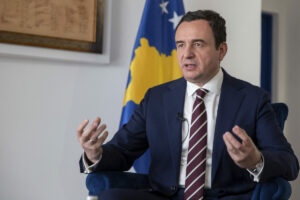The opposition has blocked the adoption of several laws in the Assembly related to the Open Balkans initiative over transparency concerns and questions about its real benefits.
Agreements for free access to the labour market, cooperation in the field of veterinary medicine and food safety, as well as communication and electronic identification, have been blocked in the committees of the Macedonian Assembly led by the opposition party, VMRO DPMNE.

“When we get information about the purpose of the initiative and what it brings to our country, then we can sit down and talk more concretely about support or non-support,” said party chairman Hristijan Mickoski.
Mickoski noted that the laws would only pass once his points had been clarified. The party chairman also said he is waiting for Prime Minister Dimitar Kovacevski to invite him to a meeting to explain what North Macedonia wants in a regional group with Serbia and Albania.
“I heard in an explanation that the initiative is for good neighbourly cooperation, but I often ask how two of these three countries that are in the Open Balkans are bordered”, said Mickoski, pointing out that Albania and Serbia do not border each other.
According to Albanian and Serbian leaders, the Open Balkan initiative between Belgrade, Tirana and Skopje aim to facilitate the movement of goods and people between countries with ease and benefits following the signing of trilateral agreements.
Kosovo and Bosnia and Herzegovina have refused to participate, fearing it would jeopardise their EU path, while Montenegro is yet to commit.
The EU has been measured in its response, saying it supports regional cooperation, but the Berlin Process remains critical.
Critics say that forging closer allegiances with Serbia when they refuse to enforce EU sanctions and Russia and are actively signing agreements for closer collaboration in areas including foreign policy is a cause for concern and risk for security in the region.
Source: Euractiv















